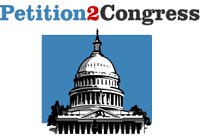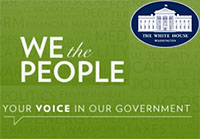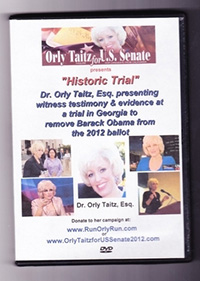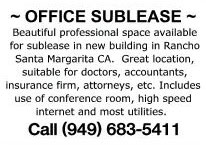Demand from Roberts a response to my request for investigation into erasing of my Lightfoot v Bowen case from the docket of the Supreme Court. It has been a year and no answer yet from Chief Justice Roberts
Posted on | March 10, 2010 | No Comments
Supreme Court chief fights back after criticism from Obama
It’s no secret that many think the fierce mood of partisanship is routinely crippling Washington. While most of the fur flies between the major parties in Congress — with the president weighing in occasionally to keep his party leaders on message — this week has seen an outbreak of hostilities in a less traditional venue: between the Supreme Court and the president.
In a controversy stretching back to January’s State of the Union Address, Chief Justice John Roberts told a group of law students at the University of Alabama that President Obama’s very public dissent from the Court’s Citizens United ruling, which effectively rolled back most existing restraints on corporate funding of political campaigns, was a provocation to the court’s cherished independence.
“On the other hand, there is the issue of the setting, the circumstances, and the decorum,” said Roberts. “The image of having the members of one branch of government standing up, literally surrounding the Supreme Court, cheering and hollering while the court — according the requirements of protocol — has to sit there expressionless, I think is very troubling.”
It’s true that Obama pulled few punches in characterizing the Citizens United ruling, which had been handed down just prior to the State of the Union speech.
“Last week, the Supreme Court reversed a century of law to open the floodgates for special interests, including foreign corporations, to spend without limit in our elections,” Obama said. “Well, I don’t think American elections should be bankrolled by America’s most powerful interests, or worse, by foreign entities.”
Some of the lawmakers on hand interrupted Obama’s remarks with cheers of support. But television cameras panned the Court members in attendance and caught Justice Samuel Alito mouthing the words “not true.”
Video courtesy ABC News. For more visit ABC News.com
In Washington and in public debate, response to the dust-up split down partisan lines. Conservatives took issue with Obama’s criticism of the court, and liberals decried Alito’s breach of protocol. Outside of Washington, though, recent polling has shown that the decision is widely unpopular with Americans across the ideological spectrum.
Of course, Roberts wasn’t always so hands-off with the Supreme Court. When he worked for the Reagan administration, he was an aggressive public advocate pressuring the Court and was privately highly critical of how it organized its own business.
And for all the hubbub, it’s worth recalling that smack-downs between the two branches of government, while rare, are not unheard of. In his memoir, President Clinton was critical of the 2000 Bush v. Gore decision that ended that year’s election; Nixon fumed about the Burger Court’s ruling that he couldn’t protect himself during Watergate with “executive privilege;” and way back in 1936, Franklin Roosevelt proposed an additional three justices to the Court so that he could appoint them himself and skew the Court’s decisions in favor of his New Deal proposals.
But it is somewhat rare that these battles are as public or intense as this one appears to be getting. That may be because the Court’s decision was an historic one justifying intense debate, or it may be because politics are getting more conflict-driven across the board.
–Brett Michael Dykes is a regular contributor to Yahoo! News
Comments
Leave a Reply















 29839 Sta Margarita Pkwy,
29839 Sta Margarita Pkwy, 
 Videography by Barbara Rosenfeld
Videography by Barbara Rosenfeld 

